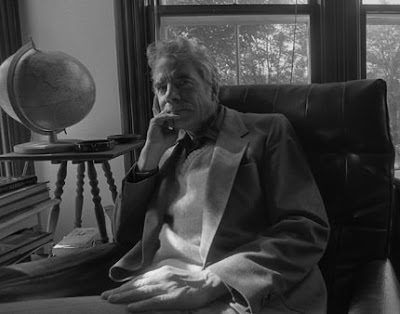A thought about post-truth political language and the language of theology
 |
| Click here for an interview with Altizer in Emory Magazine |
Of course Altizer speaks specifically about theology and God in the opening two paragraphs of his book below but, if you replace "God" with "Reality" and "theology" with "politics" (a legitimate move in my opinion) then I think you'll be able clearly to see why I made the connection between Altizer's words and the current political "debate".
I think we should be deeply concerned (even very afraid) about this situation. Your thoughts would be most welcome.
—o0o—
Theology today is most fundamentally in quest of a language and mode whereby it can speak. Above all it is in quest of a language whereby it can speak of God. Ever increasingly and decisively this quest is becoming a quest for language itself, and for a new language, a language whereby we can actually and fully speak. Again and again we have discovered that the greatest obstacle to speech about God is now the obstacle of speech itself. If language has become a prison-house in our time, then so likewise has speech. We can speak about God only if we can fully and actually speak, even if such speech should be indirect, paradoxical, or veiled. Yet it is the very possibility of such speech which is most in question for us.
Speech is the most immediate and intimate arena of our life and identity. Whether in interior monologue or in exterior confrontation and response, speech is our primal mode of realizing identity and meaning, and neither meaning nor identity can be actual and real apart from speech. No doubt the uniquely modern obstacles to speech revolve about a breakdown in meaning and identity in the modern world. And this breakdown may be observed not only in society and politics, but also in literature and the arts, as well as in physics and philosophy. Speech has become ever more precarious in all of these realms, and most frequently the actual exercise of speech seems to deepen rather than to resolve this situation (pp. 1-2).


Comments
Thank you very much for your comments and kind encouragement to keep going. Much appreciated.
Like you I think there is a chance that individual goodness and compassion may be spreading -- and I take your point about being yourself the change you want to see in the world. I think we can (and must) interpret the world differently from how we used to interpret it.
However, my concern is not so much with the individual but rather with the fact that, at the moment, individuals seem unable to coalesce around a genuinely shared "name" (language) that might just be able to help us face down the neoliberal culture which has for such long time thrived on post-truth politics. My left-wing background gifted me the names of "the proletariat", "the working-class", and "communism", whilst my Christian background gifted me the names of "liberal", "free", "radical" or "unitarian" Christianity, but all of these names (languages) -- and many others I could point to -- are clearly no longer able to function in a way that enough people are prepared to gather round them to help them affect real change.
Without a shared "name" to gather around, the goodness and compassion we can both see about us, is clearly struggling to make a difference in the socio-political realm. It's that which makes me fearful.